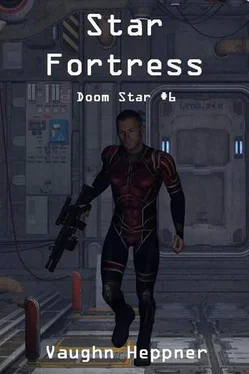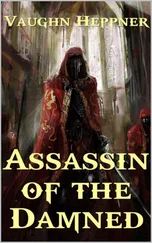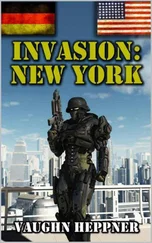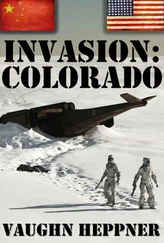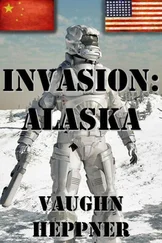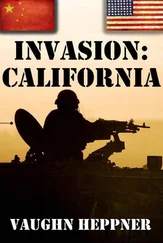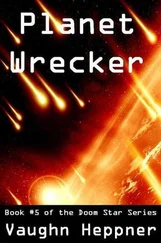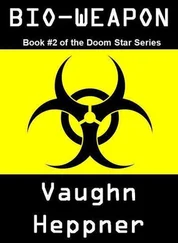“Do we know the headings of the various asteroids?” Circe asked.
“Asteroids?” Tan asked. “The correct name is ‘planet-wreckers’.”
“If we’re going to use the proper words,” Circe said, “then let us call them ‘moon-wreckers.’ The rocks can do no harm to Jupiter.”
Tan made another sound of despair, adding, “I see the end of Jovian Civilization.”
Circe bared her teeth, shaking her head. They were un-philosophic gestures, picked up perhaps during her sojourn among the less educated. Circe pulled out a touch-pad, her small fingers blurring over the screen. Numbers and information began scrolling in the air beside the holoimages. The Sub-Strategist read the information at an incredible rate.
“According to the astronomers’ findings,” Circe said, “the objects definitely originated from the Uranus System.”
“This answers our question,” Tan said. “The cyborgs have conquered Uranus’s moons and habitats.”
Circe nodded as she continued to tap her touch-pad. The faint holoimages of the eight moon-wreckers vanished. In their place appeared the Sun. Circe studied the planets and their relative locations in the Solar System.
Tan also observed. Neptune, Saturn, Mars, Earth and Mercury were on one side of the Sun. Venus, Jupiter and Uranus were on the other. The attack on Jupiter had originated from Uranus, approximately fourteen AUs away, or fourteen times the distance from the Sun to the Earth. After computing the velocity and trajectory of the eight moon-wreckers, it was obvious they had orbited the blue-green ice giant, building up speed this past year. Several months ago, the cyborgs had launched the eight asteroids, causing them to break out of Uranus’s gravitational pull. It was clear the cyborgs had immediately shut off each wrecker’s massive engines—it would have taken gargantuan engines to propel the asteroids. Ever since then, the eight objects had been gliding through the Great Dark, eating up the distance to Jupiter, ready to bring destruction to the system.
“Their composition is different from the planet-wreckers launched from Saturn last year,” Circe noted.
“It is the reason, I’m told, these were so hard to find.”
Circe read more data as she continued to speak. “Many of the Saturn-launched wreckers were icy asteroids. These are formed of a dark carbon material, with an albedo of five percent.”
Albedo was a measure of an object’s reflecting power, the ratio of reflected light to incoming light for a solid surface. Complete reflection would be one hundred percent.
“How did the cyborgs conquer Uranus without our knowledge?” Tan asked. “There should have been radio signals, distress calls.”
Circe glanced at her. “The answer is obvious. It was a successful stealth campaign.”
The despair began to well up again in Tan. The scope of such an operation…it was bewildering and showed the breadth of the cyborgs’ power. How could the Jovians hope to defeat such an enemy? It was impossible.
“Are there more objects incoming?” Circe asked.
Tan wanted to ask the Sub-Strategist the point of these useless questions, but that would take too great of an act of will. They were doomed. Let Circe play out her life as she chose.
“We have not spotted more,” Tan said, glancing at her hands. Maybe it would be better to fight than to await certain annihilation. The attack was so galling, so… unfair . “If the planet-wreckers launched at Earth are any indicator, the cyborgs prefer to make one massive assault instead of sending a continuous stream of asteroids. Logically, we can expect the same pattern here, are seeing it unfold against us.”
“Hmm,” Circe said. “I notice this is a smaller number of wreckers than launched at Earth. That is in our favor.”
“I suppose that is true,” Tan said. “But we also have a smaller number of warships to attempt deflection. Given our ship tonnage and capabilities, the ratios are in favor of the cyborgs.”
While scowling, Circe asked, “What is the estimated time of impact with our system?”
“Five weeks,” Tan said.
Circe’s head swayed slightly. She asked in a huskier tone, “What are their targets? Did the astronomers discover that?”
Tan produced a touch-pad and began to manipulate it. Dotted lines sprouted from each of the faint moon-wreckers. As the lines lengthened, an enlarged Jupiter System appeared. The eight lines spread apart, heading for the Galilean moons, two each at Io, Europa, Ganymede and Callisto.
“Two wreckers per moon,” Circe said. “That is interesting.”
“From a theoretical point of view, I suppose that’s true,” Tan said. “It proves the cyborgs are not all-knowing. Apparently, they failed to realize that Io and Callisto are almost devoid of people. They would have been better served aiming those wreckers at the two populated moons.”
“I don’t necessarily agree,” Circe said. “We have begun re-colonization of Callisto.”
“On an extremely limited basis only.”
Circe tapped her pad. It caused the holoimage to show the massive gas giant of Jupiter. Circling it were two new asteroids, one of four kilometers diameter and the other of six. A close-up appeared on one, showing massive ports for huge engines within the projectile.
“We have two wreckers of our own and they are already moving at a great speed,” Circe said.
Tan made a listless gesture. “Meaning we can possibly deflect two of the enemy’s projectiles.”
Circe studied the holoimages with care before turning to Tan. “Which two do we attempt to deflect?”
“Precisely,” Tan said as the hopelessness welled from her chest, radiating throughout her body. “Do you have any preferences?”
Circe blinked at the holoimages. “We must assume that each of the Uranus wreckers contain laser turrets and missile launch-sites.”
“No assumptions are needed. The astronomers have already spotted structures on the surface that match those of the Saturn-launched wreckers.”
“Cyborg warships might conceivably be behind the eight wreckers,” Circe said.
“We must give that a high probability,” Tan agreed.
“The Guardian Fleet is woefully under-strength for this mission.”
Tan made a bleak sound. “One dreadnaught and seven meteor-ships—I am well aware of our deficiencies.”
“Suppose we decided to deflect the two wreckers headed for Ganymede,” Circe said. “How would the industrialists of Europa respond to the news?”
“With deadly vigor,” Tan said.
“And if we attempt to save Europa?”
“Most of the space marines aboard the various warships are from Ganymede,” Tan said, “along with two meteor-ship crews. Once they learned we would make no attempt to defend their moon, they might object in a forceful manner.”
Circe became thoughtful. “Those of Europa primarily crew the civilian liners and the majority of the helium-3 tankers.”
“You are beginning to understand the quandary,” Tan said. “Europa also contains more heavy industry.”
“That should make it an easy decision then,” Circe said, “easy in a philosophic sense.” She grimaced. “I must admit to finding myself feeling emotional about the topic, which is distracting me from purified reasoning.”
Once more, Tan attempted to concentrate her thoughts. She would follow the Sub-Strategist’s example, using a philosophic approach to this, employing her lifelong training and submerging her ‘emotional response.’
“These emotions,” Tan said. “I suspect you are still tainted from your episode aboard Force-Leader’s Kluge’s vessel.”
“No doubt you are correct,” Circe said, as her features took on a pinched look.
“Let me add a third possibility—third in terms of which moon we should save,” Tan said. “Callisto is the heart of our superior civilization. As you pointed out, we have already begun to rebuild on the moon. This may be the answer to our dilemma: that of how to revive the most humanizing civilization ever seen during man’s long history of brutality and unexamined actions. If Ganymede and Europa perish, Callisto will become the premier Jovian moon. Although the Jovian System will lack numbers after the strike, the survivors will be pure and we can begin anew with untainted citizens.”
Читать дальше
